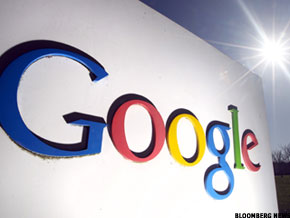By TheStreet Staf
WASHINGTON -- The Federal Communications Commission has proposed fining Google(GOOG_) $25,000 for obstructing an investigation into the company's collection of data from unencrypted Wi-Fi networks in 2010, according to a published media report.
WASHINGTON -- The Federal Communications Commission has proposed fining Google(GOOG_) $25,000 for obstructing an investigation into the company's collection of data from unencrypted Wi-Fi networks in 2010, according to a published media report.
Although the FCC has decided there was insufficient evidence to conclude that the data collection violated federal rules, the commission said Google deliberately impeded the investigation, The Wall Street Journal reported Saturday.
The FCC proposed the fine late Friday night, the Journal said.
Google may appeal the proposed fine before the commission makes it final, the Journal said. The company has said that it inadvertently collected the data and stopped doing so when it realized what was going on, the newspaper added.
Shares of Google closed Friday down $26.41 at $624.60.
FCC proposes fine for Google Wi-Fi snooping case 'obstruction'By Zack Whittaker
Summary: The U.S. FCC has proposed a $25,000 fine after Google “impeded and delayed” an investigation into collecting wireless payload data from unencrypted Wi-Fi networks.
The U.S. Federal Communications Commission is proposing a $25,000 fine against Google for “deliberately impeded and delayed” an ongoing investigation into whether it breached federal laws over its street-mapping service, the Wall Street Journal reports.
The FCC initiated an investigation in 2010 after Google collected and stored payload data from unencrypted wireless networks as part of its Google Maps Street View service. Its intended use, Google says, was to build up a list of Wi-Fi network hotspots to aid geolocation services on mobile devices through ‘assisted-GPS’.
The U.S. followed suit after many European countries, including Germany, which has some of the strictest data protection and privacy laws in the world. But the European nation went one step further and told Google to withdraw its Street View cars from the country altogether.
Google also drew fire from the UK’s data protection agency after it was told it committed a “significant breach” of the UK and European data laws when it collected wireless data from home networks. It was audited by the regulator and was told it “must do more” to improve its privacy policies. Google said it had taken “reasonable steps” to further protect the data of its users and customers.
But the FCC stopped short of accusing Google of directly violating data interception and wiretapping laws, citing lack of evidence. The federal communications authority did not fine the company under eavesdropping laws, as there is no set precedent for applying the law against ‘fair-game’ unencrypted networks.
The FCC took the action after it believed Google was reluctant to co-operate with the authorities after the scandal emerged. An FCC statement added that a Google engineer thought to have written the code that collected the data invoked his Fifth Amendment rights to prevent self-incrimination.
Google can appeal the fine. Despite the fine being a mere fraction of the company’s U.S. annual turnover, not doing so until its legal avenues are exhausted would almost be an admittance of guilt.
The search giant eventually offered an opt-out mechanism for its location database by adding text to the networks’ router name. But further controversy was drawn after another Silicon Valley company offered an opt-out only solution.
Facebook also drew fire from the regulators after the U.S. Federal Trade Commission allowed the social networking giant to settle, allowing users to opt-in to its sharing privacy settings, rather than opting-out; seen as a major win for U.S. users’ privacy on the site.
- Google passes Street View audit, but ‘must improve’ privacy policies
- Google offers Street View opt-out for Wi-Fi mapping; Unethical snooping, yet we must opt-out?
- Facebook to make all sharing privacy settings ‘opt-in’
- Germany gets new privacy tool from Google
- Lawyers Claim Google Street View Wi-Fi Sniffing 'Is Not ...
- Google in hot water
- Google+ face-lift triggers jibes over extra white space
- Google plans major revamp for search engine
- Google acquires more IBM patents

